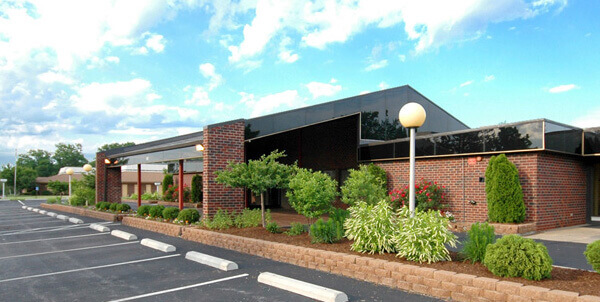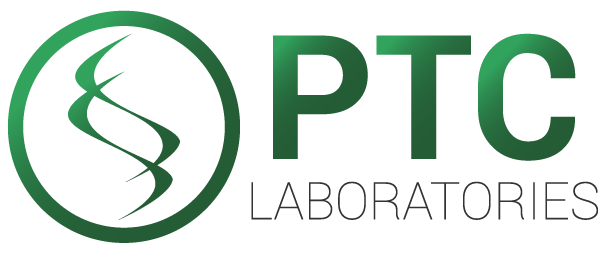PTC Laboratories, Inc.

Accreditations
In forty-nine states there is no law that requires a laboratory that does paternity testing to be accredited. However, accreditation is the only security you have, as a client, that the paternity testing results you receive are legitimate and reliable. Forensic Quality Services – ISO 17025 – Our DNA laboratory has international accreditation ISO 17025 for paternity testing and forensic DNA studies. This accreditation is significant for paternity tests whose subjects are people living outside the United States. Forensic Quality Services conducts inspections in our laboratory every two years. Proficiency Testing – our DNA laboratory, along with all accredited laboratories, receive DNA samples from accrediting agencies several times throughout the year for paternity testing. PTC Laboratories is required to process these DNA samples and send the results back to the agencies that issued them. These proficiency tests are a way for accrediting agencies to ensure that laboratories performing DNA paternity tests continuously follow scientifically accepted procedures. The Department of Commerce of the United States, Certificate of Export Excellence – Although not an accreditation, it is included here because it is the best place to demonstrate this independent recognition of all paternity testing our DNA laboratory performs worldwide.
Choosing a Paternity Laboratory?
When you first decide to get a paternity test, the number of laboratories and resellers can be overwhelming. Moreover, as everyone knows, the internet is full of dishonest sites that seem like legitimate businesses but have the sole purpose of taking your money. There are some who give false paternity tests, and some provide a completely unreliable paternity test that often gives the wrong answer. This turns out to be a major problem in this area because people do not know what to expect or how the paternity test should work, and have no way to judge the quality of the paternity test they are receiving. Do not trust any business at their word. Make sure they are legitimate.
If the website that you found does not show an address with a street number nor a direct phone number, this is suspicious and you should continue your search. Also, if they are not willing to tell you exactly which AABB accredited laboratory they are using, you can not trust them. But what to do next?
Fortunately, if you are armed with a little information, you can easily remove the worst choices by asking a few questions. The wording of these questions is very specific, so you should get honest answers even from disreputable organizations. (It may be a good idea to take notes, with details such as the name of the representative). You can also independently verify things like AABB accreditation through their official website.
To help protect yourself from dishonest companies, and to obtain a reliable paternity test from a legitimate laboratory, start with a brief call asking the following questions:
- Will my paternity test be completed by an AABB accredited laboratory and what is the specific name of this laboratory?
- How many DNA markers (or loci) are analyzed in the initial paternity test? (We recommend at least 18 locations in the initial paternity test).
- What is your minimum guaranteed paternity probability (recommend a minimum of 99.99%) and is this probability the same if the paternity test is done without the mother, and even if DNA mutations are discovered in the paternity test?
If the laboratory meets these three requirements and you have confirmed their AABB accreditation, you can feel comfortable this is a legitimate lab and will receive reliable results.
The following is an elaboration on the above key questions:
Always work with an AABB accredited laboratory
In the United States there are no government agencies that oversee laboratories performing paternity testing (with the exception of the State of New York), and in many jurisdictions a person or company does not even need a license to offer paternity testing to the public. Unless the paternity laboratory is accredited by the American Association of Blood Banks (AABB), the customer has no assurance that the paternity test is reliable. If you confirm AABB accreditation, this ensures that you are using a legitimate paternity lab, and not just a web site designed to take your money.
Some companies, on their website or by phone, claim that they have accreditation by AABB when in fact they do not. You can get a list of laboratories accredited by AABB by calling the AABB at (301) 907-6977, or you can click here to browse the AABB website.
Choosing between laboratories accredited by AABB
Unfortunately, AABB accreditation is not an absolute guarantee that you will receive accurate paternity results. As discussed in more detail in the section Avoid Erroneous Results, the minimum level of DNA analysis is not always enough to get the right answer. Laboratories are aware of this reality, but some continue to do the bare minimum. As a consequence of this situation, a number of incorrect results are issued by accredited laboratories every year.
Some laboratories accredited by AABB, and also some resellers, say they are the “best in the world” or “recommended by doctors,” or that their analysis provides “100% accurate” results. These are statements that can not be tested and in most cases are completely false. Paternity testing is based on probabilities. PTC Laboratories tests more than 40,000 people each year, and to our knowledge have never issued an incorrect result. However, even with all the precautions and additional analysis PTC Laboratories performs, we can not say that it would be impossible for us to get an incorrect result. It is impossible to guarantee 100% accuracy for inclusionary cases due to human error. However, many laboratories market a 100% guarantee on paternity results in an effort to dissuade customers from other laboratories that are actually being more honest with them. PTC Laboratories gives you a 99.99% positive probability on paternity results, accounting for the possibility of error while still giving you an extremely high probability.
With this in mind, how does a consumer protect themselves from dishonest business and choose the best accredited DNA laboratories?
1. Ask: How many DNA locations (or markers) are included in the initial test?
As more locations (loci) DNA are tested, the DNA profile becomes stronger. (See Avoid Erroneous Results) Currently, the standard number of test markers to achieve the most reliable results is eighteen. One of these markers tests the sex of the person giving the sample DNA. The other seventeen markers are used to determine paternity. Many laboratories analyze fewer loci. Some test thirteen, or ten, or even only nine loci DNA. Since some laboratories test a greater number of loci at no additional cost to the customer, it is worth it to seek out these institutions.
2. Ask: What is the guaranteed minimum level of laboratory analysis?
When a laboratory performs its initial DNA analysis, it may not reach its minimum level of discrimination. In this case, they should continue testing more DNA locations, without charging more, to achieve the minimum level required.
AABB requires a lab continue analyzing until a probability of paternity of only 99.0%. At this level of analysis, the laboratory has found a genetic pattern that, on average, is typical of one in every hundred men. Some laboratories insist on doing analysis to achieve a probability of paternity of 99.9%, which is a genetic pattern that, on average, is typical to one of every 1,000 men.
Other laboratories continue to analyze, without additional charge, to a probability of paternity of 99.99%, a genetic pattern possessed on average by only one man in every 10,000. A minimum probability of 99.99% should be your goal.
Make sure they guarantee 99.99% even if the mother is not examined, and even if the lab found DNA mutations. These are difficult cases, and if the laboratory can guarantee 99.99% in these cases, then they are providing a strong analysis in general. So it’s an important question, even if the mother is included in the test.
History of PTC Laboratories
Our paternity testing laboratory was established in 1996 in Columbia, Missouri. Our laboratory’s paternity testing has come to be among the four or five largest DNA laboratories in the US, according to the volume of paternity cases performed. We perform DNA testing for more than 40,000 people each year and also conduct international cases worldwide.
As discussed and explained throughout the website, our scientists perform the highest levels of analysis and implement safeguards to avoid producing erroneous results. Because of these methods, we earn less money with every test, but sleep better, knowing that we are not giving incorrect results to the people who trust us with a matter of such importance.
As you will read in comments throughout the website, and as you can confirm with the accreditations we hold, our laboratory will provide you with the best service and the most reliable DNA test that can be obtained.
Avoid Erroneous Results
Most people assume that all paternity tests are equal, no matter who performs the DNA test. This could not be further from the truth.
Even if you are using an accredited DNA testing laboratory, the required minimum levels are very low, some at 99.0%. DNA laboratories know that if they do a DNA analysis at the minimum level, a number of results each year will identify a man as the biological father when they in fact are not (a “false inclusion”) or say no they are not the biological father when in fact they are (a “false exclusion”). The higher the minimum level of guarantee is, the less likely it is that either of these scenarios will occur.
The paternity testing industry is regulated by the American Association of Blood Banks (AABB). The two committees in the AABB establish the requirements for paternity tests. Historically, these committees have ensured that the DNA labs are following scientifically correct procedures, but have cared less about the level of analysis that DNA laboratories complete. The theory is that if a customer wants additional analysis, he can negotiate with the laboratory to pay for it. The problem with this is that the customers have no way to know if they need further analysis.
Our DNA laboratory does not condone this method and provides additional DNA analysis automatically, without additional charge. Simply put, we are never going to issue a report that could contain an inaccurate result. It is surprising that many DNA laboratories do not feel the same.
Customers who have received evidence from other laboratories, but who doubt the DNA results, sometimes come to us seeking confirmation. In the vast majority of DNA testing, the laboratory who originally provided the results have correctly identified the tested party as the biological father, or have excluded the appropriate party. However, in some cases the original laboratory has drawn an incorrect conclusion. In these cases, if the client requests that our DNA lab do the test with the same parties, we have been able to obtain the correct results, explain to the customer the reason why the other DNA lab got the wrong answer, and usually can get the other DNA lab to correct their mistake and issue a corrected report.
The problem is that in a few cases of incorrect results, customers do not realize that their original DNA test was incorrect. Many live the rest of their lives presuming their paternity test has provided the correct answer. In order to avoid a situation such as this, be sure to use a laboratory that is AABB accredited and conducts analysis with a minimum 99.99% positive paternity guarantee.

